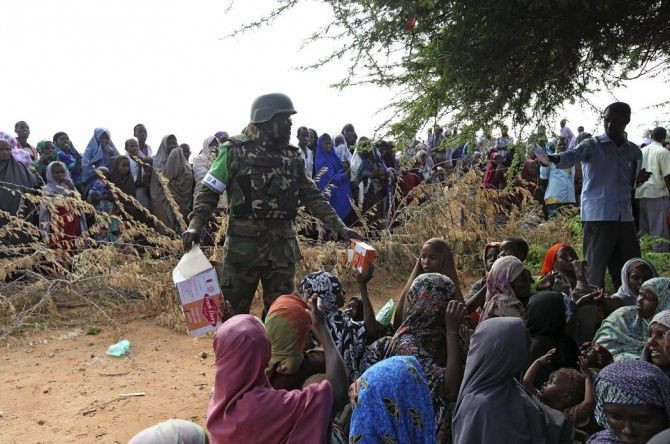WHO Reports Malaria Death Tolls Are Down

Malaria is claiming fewer lives in 2011 than in 2000, with mortality down by more than 25 percent globally and 33 percent in the African Region, according to the World Health Organization.
WHO says the finding, published in its World Malaria Report 2011, is a result of a significant scaling-up of malaria prevention and control measures in the last decade, including the widespread use of bed nets, better diagnostics and a wider availability of effective medicines to treat malaria.
"With malaria deaths in Africa having fallen significantly since 2000, the return on our investment to end malaria deaths has been greater than any I have experienced in the business world. But one child still dies every minute from malaria - and that is one child and one minute too many,” said Raymond G. Chambers, the UN Secretary General's Special Envoy for Malaria.
In 2010, there were an estimated 216 million cases of malaria in 106 endemic countries and territories in the world, resulting in an estimated 655,000 deaths – 36,000 lower than the year before. WHO notes that the mortality figures are still disconcertingly high for a disease that is entirely preventable and treatable.
Malaria is caused by a parasite called Plasmodium, which is transmitted through bites of infected mosquitoes. In the human body, the parasites multiply in the liver, and then infect red blood cells. If not treated, malaria can quickly become life-threatening by disrupting the blood supply to vital organs.
According to WHO, Malaria disproportionately affects poor people who cannot afford treatment or have limited access to health care.
The new report found that the number of bed nets delivered to malaria-endemic countries in sub-Saharan Africa increased from 88.5 million in 2009 to 145 million in 2010. The number of rapid diagnostic tests delivered by manufacturers climbed from 45 million in 2008 to 88 million in 2010, and the testing rate in the African Region rose from 20 percent in 2005 to 45 percent in 2010.
In 2010, 181 million courses of artemisinin-based combination therapies (ACTs) were procured, up from 158 million in 2009, and just 11 million in 2005. ACTs are recommended as the first-line treatment for malaria.
International funds for malaria control reached $1.7 billion in 2010 and $2 billion in 2011, but remained significantly below the $5-6 billion needed annually to achieve global malaria targets.
"We need a fully-resourced Global Fund, new donors, and endemic countries to join forces and address the vast challenges that lie ahead,” said Dr. Robert Newman, Director of WHO's Global Malaria Program.
He pointed to the need for millions of bed nets will in the coming years, universal access to diagnostic testing and effective treatment.
"We need to act with urgency and resolve to ensure that no-one dies from malaria for lack of a 5 dollar bed net, 1 dollar antimalarial drug and a 50 cent diagnostic test,” he said.
Published by Medicaldaily.com



























